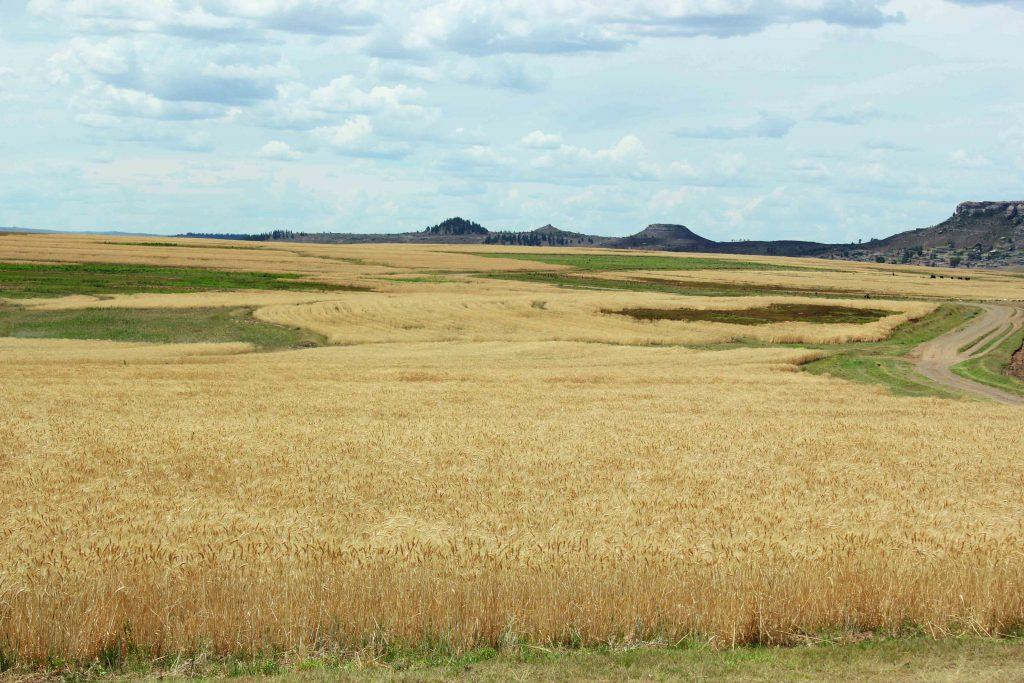Africa-Press – Lesotho. Violation of land use regulations has again come under the spotlight, as slums mushrooms in and on the outskirts of most of Lesotho’s urban areas, often on land earmarked for agriculture.
Local Government Minister Sam Rapapa became the latest to raise the issue when he launched the Lehae La Basotho Housing Project on Monday. He expressed concern over the violation of land use rules that has seen some people deviating from guidelines issued when they were allocated pieces of land.
He said the problem was more rampant with regards to agricultural land. Rapapa said the Lehae La Basotho Housing Project was part of government policy to ensure “more efficient use of land” and “would make optimal use of land”.
“I am told that the project will deliver a total of 10 000 houses to be constructed in the Maseru district alone,” Rapapa said.
“The project is welcome in view of the fact that the country is facing a housing need of 98 711 (houses) to be constructed between the years 2006 and 2025,” he said.
“This need in simple terms can be translated into a need of 5 195 dwellings or 8 932 rooms to be constructed each year.
” Rapapa said Maputsoe town in the Leribe district is growing fast and is already accommodating many factories.
“We also have the Mafeteng and Berea districts which are growing very fast after Leribe. These are potential priority urban towns for housing investment. ”
Rapapa’s statement on land use came as the Lesotho Town and Regional Planning Institute (LTRPI) issued a statement directed to all planners in the country on the land use situation and governance.
In the statement, LTRPI president Teboho Lebusa said “the challenges facing the land administration and management system in Lesotho render it ineffective and inefficient.
There is a major land-use problem in Lesotho. ” “Spatial developments largely occur outside legal guidelines, that is, land and planning laws. The country is characterised by a highly visible manifestation of informal settlements where an overwhelming majority of people live in unplanned settlements,” he said.
He said the LTRPI is concerned by the “fast growing sprawl of informal settlements on agricultural land and on the outskirts of Maseru City”. He said traffic congestion at major intersections and within the city bears testimony to this grim reality.
“It is imperative to note that planning is the first and only tool at the disposal of government for regulating and ensuring productive use of land,” he said.
He said land-use planning “must precede all spatial developments”, adding that the growing need for towns, cities and human communities calls for careful planning to ensure efficient, manageable and orderly development”.
“There is no productive use of land at both the central and local levels of government,” he said.
He said the problem of “the crippled, haphazard and chaotic nature of spatial developments in the country” stems from inability to put plans into effect, lack of development control and institutional imbalances and deficiencies”.
He called for effective institutional mechanisms for linking planning and land-use controls with the operation of the land market. “Without urgent competent intervention, our beloved towns will become slums right in front of our eyes, with potential adverse effects of pollution and congestion – a loss of Lesotho as we know it,” he said.
“Mostly worrisome is the apparent apathy harboured by those most responsible for ensuring that Lesotho remains a liveable place.
”
He said the Town and Country Planning Act of 1980 “is now old and has never been fully applied, implemented and reviewed to correct its flaws and respond to spatial problems of today”.
“Informal land-uses that are booming on the urban fringes are a result of inability to enforce land and planning law,” he said.
“The government lacks an explicit legal framework within which the planning system and land administration and management system should operate.
”
He recommended a comprehensive revision of the planning system and laws, separation of land tenure rights from land-use rights, establishment of land-use policy and a body that will enforce and oversee good planning practice.
The Land Act 2010 states the Commissioner of Lands “shall not issue a lease on the application of an allottee unless the allottee’s land is used in accordance with an approved development plan”.
“An allocation may be revoked by the local authority having jurisdiction for the area at any point prior to granting of a lease for breach of terms and conditions of allocation,” sates the Act.
The law states that before exercising its power, the allocating authority should give at least three months’ notice to the person affected to remedy the breach.
It also states that a lease may be terminated by the Minister of Local Government by giving at least one month’s notice to the lessee if the lessee is in breach of any conditions of the lease and has failed to comply with a notice from the Commissioner calling upon them to remedy the breach within a reasonable specified period of time.
Where land has been granted or allocated for a specific purpose and the lessee or allottee wishes to convert the purpose to another which is consistent with physical or town and country planning, they may apply to the local council for a change of use, and, if granted, to the Commissioner for a variation of the lease.
Despite the Land Act of 2010 and the institutional framework of land administration that it created, the governance and management of land remains chaotic, with numerous agencies and government ministries and departments in one way or the other claiming some stake in land matters.
In a paper titled Land Governance in Lesotho, some researchers noted that district councils have no role in land governance. The paper says the role of community councils is also limited relative to that of municipal or urban councils.
“Notably, community councils have neither planning nor development permit functions, these being the reserve of municipal and urban councils,” the paper reads. There are no readily available figures on registered land parcels in Lesotho.
The 2016 Population and Housing Census reported that 20 percent of households had registered leaseholds (including title deeds) while 41 percent had only unregistered certificates of allocation to their land (predominantly residential plots).
The paper on Land Governance in Lesotho also found that 39 percent had neither unregistered certificates nor formal leasehold titles to their land parcels.
This means that extensive land that is used for crop farming and communal pastures is not formally registered, including a significant proportion of public land.
Lately there has been a mushrooming of residential houses on agricultural land, which is already dwindling, in the peripheries of every town in Lesotho.
For More News And Analysis About Lesotho Follow Africa-Press






